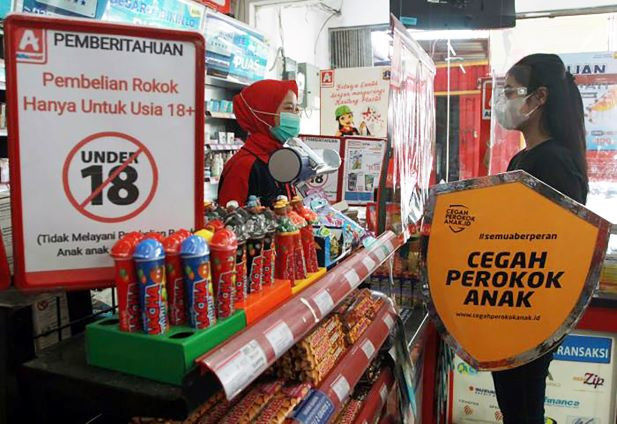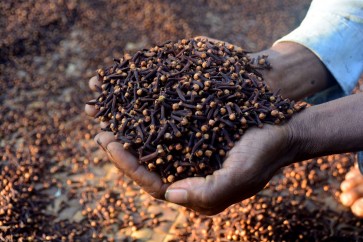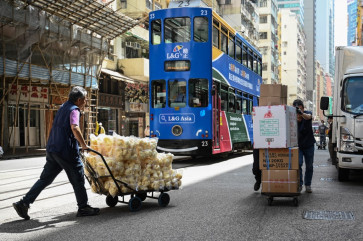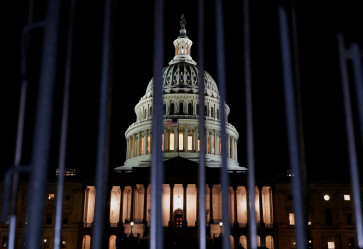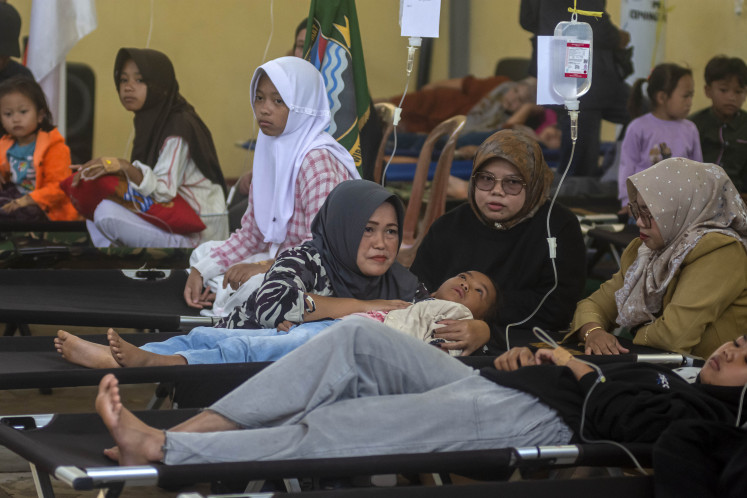Popular Reads
Top Results
Can't find what you're looking for?
View all search resultsPopular Reads
Top Results
Can't find what you're looking for?
View all search resultsMedia key in challenging tobacco industry's narratives
Indonesia’s tobacco-control policy is toothless when facing the powerful influence of a giant tobacco industry.
Change text size
Gift Premium Articles
to Anyone
I
ndonesia has been infamously regarded as a “Disneyland for the big-tobacco industry”, a baby-smoking country and other demeaning terms. While ASEAN neighbors are taking up arms against the tobacco industry, Indonesia has preferred economy over public health.
The Global Adults Tobacco Survey 2021 shows a significant increase in tobacco users to 70.2 million people in 2021 from 61.4 million in 2011. Worst of all, smoking prevalence among children aged 10 to 18 years also increased to 9.1 percent in 2018 from 7.2 percent in 2013.
Enforcing Government Regulation (PP) No. 109/2012 is not enough to discourage tobacco consumption and to regulate the tobacco industry.
“These figures show Indonesia failing to address the epidemic of tobacco smoking that kills over 200,000 Indonesians every year. This is unacceptable,” commented Tara Singh Bam, Asia Pacific Director of the International Union for Tuberculosis and Lung Diseases (The Union).
As the current policies on tobacco control are ineffective in Indonesia, the media play a critical role in holding the government accountable for effective tobacco-control measures, added Tara.
However, it might be easier said than done for the media to work on tobacco-related problems.
Indonesia’s tobacco-control policy is toothless when facing the powerful influence of the giant tobacco industry. “Working on these issues is delicate and risky,” explained Maria Hartiningsih, Project Multatuli’s lead editor of its investigative-reporting team, told participants of the 7th Indonesian Conference on Tobacco or Health (ICTOH 2022) recently.
“In doing so, we were armed to the teeth with deep knowledge, information, past and current researches and studies, tobacco-control policies and regulations at local, national and global levels, the sophisticated tobacco tactics and certainly field works,” said Maria, a seasoned journalist and a winner of Yap Thiam Hien human-rights award.
In June 2021, the Association of the Indonesian Health Professionals (IAKMI) engaged a team of journalists to find out why the planned revision of PP No. 109/2012 submitted by the Health Ministry to the State Secretariat went nowhere.
Currently the regulation is the prevailing legal instrument to control tobacco use. Indonesia is the only country in Asia that has not yet ratified the World Health Organization (WHO) Framework Convention on Tobacco Control (FCTC).
Soemarjati Aryoso, chair of Tobacco Control Support Center (TCSC-IAKMI), said the revision of the regulation aimed to impose stricter control over advertisement and promotion of tobacco products, electronic cigarettes (e-cigarettes) and heated tobacco products such as IQOS. The revision also covers advertisement and promotion on the internet, digital and other social-media platforms.
Both tobacco-control advocates and industry have been using the media to achieve their goals. There are pro-tobacco-control media as well as pro-tobacco-industry media in the country.
“When we tried to assemble a team of journalists for this reporting work, many declined our offers, fearing it was against their media organization’s standpoints and policies,” Maria explained.
After almost a year, the team has identified a number of key takeaways -- debunking myths and created narratives that the tobacco-control policy would hurt tobacco farmers. After visiting tobacco-producing centers in East Java and Central Java and interacting closely with farmers, the team found out it was the injustice-trade scheme that hurt them more than tobacco-control policy.
At least, there are three irreconcilable conflicts of interests -- investment, excise and the health of Indonesia’s future generation, Maria said.
From the government’s point of view, it is obvious that investment and economic issues have become its first priority over public-health concerns. Maria said only a few sources agreed to be named, while the majority of government officials opted to remain anonymous due to their positions.
The government’s pro-tobacco standpoint was obvious when President Joko “Jokowi” Widodo via State Secretary Pratikno returned the initiative permit to revise PP No. 109/2012 in November 2021, said Maria.
“In this case, the media’s role is even more vital to disclose the tobacco industry’s wrongdoing and inform public and policymakers of the industry’s trick to lure children to smoke through advertising, promotion and sponsorship,” Tara added.
As of April 2022, globally, the tobacco industry spent US$7.8 billion for cigarette advertising and promotion (Tobacco Atlas, May 2022). In Indonesia, Eleanor Crum from AC Nielsen stated via e-email that cigarette and tobacco-advertising expenditures between January-November 2021 alone reached nearly Rp 1 trillion (US$66,560).
With such a huge amount of financial resources, the industry has managed to create a perception that tobacco use is socially acceptable and less hazardous than it really is.
A recent study conducted jointly by Vital Strategy and the Indonesian Guidance and Counseling Teachers’ Association and several partners has shown that the tobacco industry’s efforts to create such positive images have been working extremely well.
The outbreak of the current COVID-19 pandemic has made the situation even more challenging as Indonesian youth are spending more time online.
A study of 2,282 adolescents aged between 13 and 15 years reveals that 83 percent of teenagers do not believe that tobacco advertising encourages smoking initiation or misleads people about smoking being addictive (72 percent), while 22 percent say they trust messages in tobacco ads and 12 percent remember the slogan of cigarette brands advertised on the internet.
Shobha Shukla, executive director of New Delhi-based Citizen News Service (CNS), insisted: “The media should be able to connect the dots between tobacco use, health impacts on users and even non-smokers. It should also comprehensively address social inequity.”
“It is equally important for the media to focus on youth and adolescents, sharing of correct information, exposing health-related corporate-social-responsibility activities of tobacco companies and their greenwashing efforts,” said Shobha, also founder of the Asia Pacific Media Alliance (APCAT) for Health and Development
Tan Shiow Chin, deputy health editor at the Star Malaysia said: “What the media can do is basically to educate the public and maintain awareness of the ill effects of tobacco use.”
In Malaysia, the majority of media and the public generally supported the government plan to strictly ban smoking as one in five Malaysian aged above 15 years smoke, she said.
In February 2022, the Malaysian Health Ministry planned to introduce a new law to totally ban smoking and the possession of tobacco products, including electronic cigarettes, for people born after 2005. The new law is called Generational End Game for smoking in Malaysia.
Myanmar, surprisingly, ratified the FCTC in 2004, a year after its issuance.
“Preventing people from the danger of smoking is a national duty for every citizen, especially for the media,” said Tin Making Htwe, a noted editor in Myanmar.
In October 2021, despite the political crisis and pressures from the tobacco industry, Myanmar announced the implementation of plain packaging.
As Tim Johnson, medical editor of ABC News puts it, we, given the privilege of access to media, should be aware of our own responsibilities in the fight against tobacco use, including the need to choose words and images to counter misinformation and temptation aimed at the young entrusted to our care.
***
The writer is a journalist focusing on public health and development issues.

